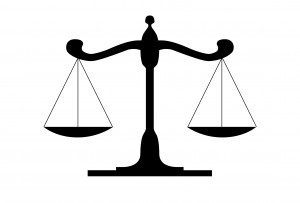In today’s ever-changing business landscape, sustainability is more than a buzzword; it’s a fundamental aspect of corporate success. As organizations struggle with the challenges of climate change, social responsibility, and ethical management, it’s the C-Suite executives who play a pivotal role in shaping a sustainable future.

The C-Suite’s dedication to sustainable practices has a far-reaching impact on the environment, society, and the bottom line. Sustainability is not just about “green” initiatives; it’s about ensuring a business’s long-term survival.
Sustainability Agenda
Sustainability is an ongoing endeavor. The C-Suite should be prepared to adapt and evolve; and creating a sustainability agenda is one way to help organizations in response to changing circumstances, market dynamics, and emerging sustainability trends. A sustainability agenda would include six steps:
- Defining Clear Goals: set specific, measurable and achievable goals that align with the organization’s mission and values.
- Identifying Stakeholders: determine who key stakeholders are (employees, customers, investors, etc.), and understand their expectations and concerns.
- Assessing Current Practices: conduct an assessment of current sustainability practices to identify strengths, weaknesses, opportunities, and areas for improvement.
- Allocating Resources: allocate the resources needed to support the sustainability initiatives.
- Monitoring the Program: keep track of the progress towards sustainability goals and make any adjustments when necessary.
- Celebrating Achievements: motivate and inspire the organization by recognizing and celebrating milestones and achievements in your sustainability efforts.

The Need for Transparency
The need for transparency is essential throughout the company. Stakeholders, including customers, investors, and employees, expect organizations to be accountable for their sustainability efforts. And, the C-Suite is responsible for ensuring this through accuracy and transparency.
To make meaningful progress in sustainability, executives must establish clear metrics. These metrics must help to track progress, identify areas for improvement, and align sustainability efforts with overall business goals.
Committing to a Sustainable Future
A commitment to sustainability is not just a short-term trend; it’s a shift in how businesses operate. Organizations that prioritize sustainability are better positioned to adapt to changing market dynamics, mitigate risks, and thrive in an increasingly eco-conscious world.
According to Forbes, “…sustainability can actually help make your business run better—companies with strong sustainability programs have higher employee morale…and increased employee loyalty.”

The actions, decisions, and behaviors of the C-Suite set the tone for the entire organization. By embracing sustainable practices in their own roles, executives may inspire employees at all levels to follow suit. And, if an executive finds the need for assistance on this journey towards sustainable leadership, Rodas Coaching may be able to help.
